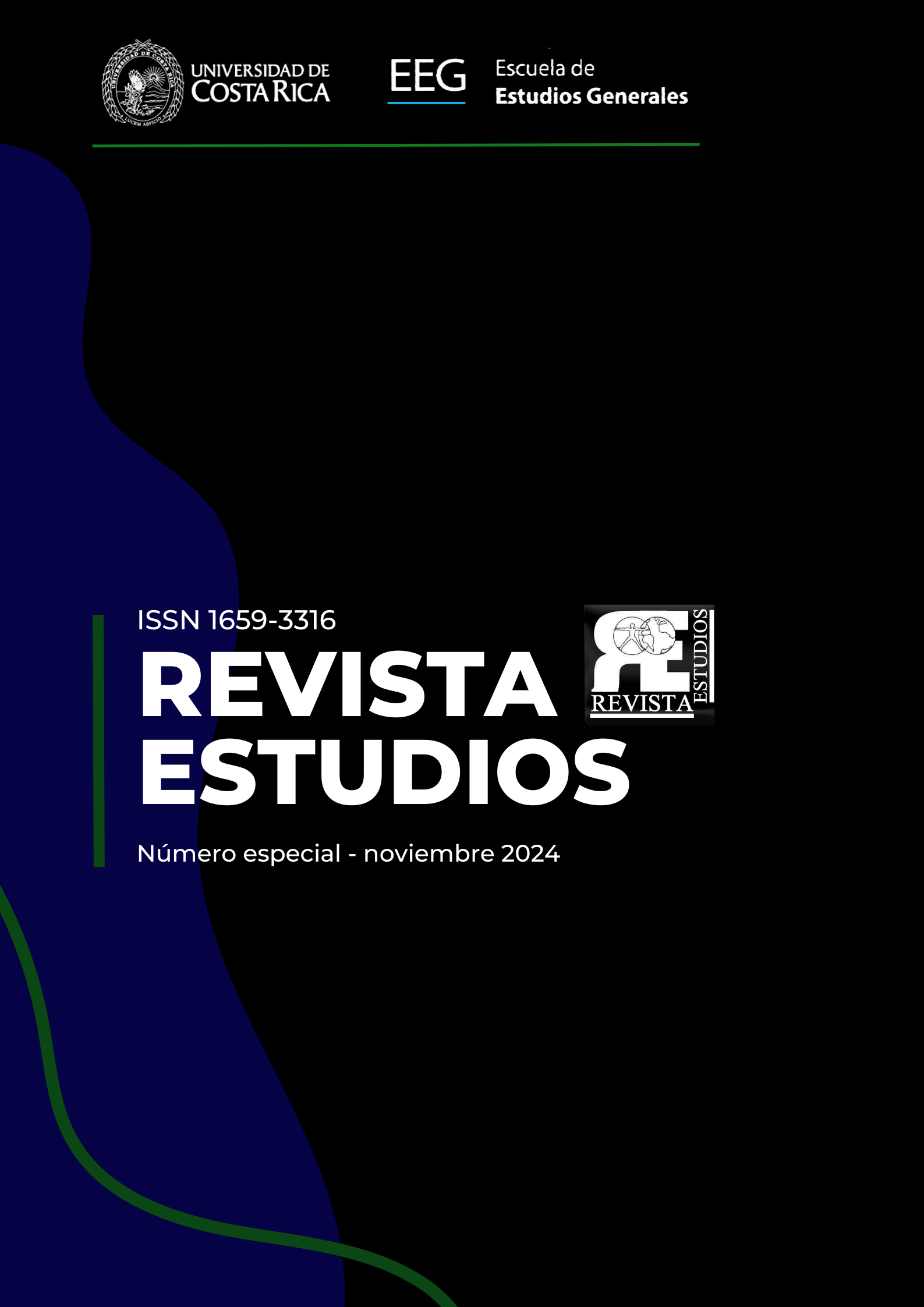Abstract
This paper examines the main proposals of discourse analysis and critical discourse analysis, as well as their relationship with the Digital Humanities. In addition, it presents a series of examples of research work carried out at the University of Costa Rica, with the aim of serving as a model for a wider application of Digital Humanities in the classrooms of this institution, mainly those linked to the areas of study in question. It also outlines examples of some of the current qualitative analysis tools with short tutorials for their basic use. Finally, a list of recommendations is presented that will be useful to academic staff who want to approach this multidisciplinary area of knowledge for the first time.
References
Badilla, H., Cruz, K., Pereira, F., Rodríguez, P., Rojas, B. Saborío, A., Sáenz, R., & Vindas, F. (2020). A propósito de El Caribe. Origen del mundo moderno. La experiencia de aproximarse a las literaturas de los Caribes desde las Humanidades Digitales. Istmo, 40(2020), 144-156. http://istmo.denison.edu/n40/avances/13.html
Calsamiglia, H., & Tusón, A. (2002). Las cosas del decir. Manual del análisis del discurso. Planeta.
Cantamutto, L., & Vela-Delfa, C. (2016). El discurso digital como objeto de estudio: de la descripción de interfaces a la definición de propiedades. Aposta. Revista de Ciencias Sociales, 69, 296-323. http://www.apostadigital.com/revistav3/hemeroteca/cvela2.pdf
Del Río, G. (Coord.) (2014). La cultura de los datos. Actas del II Congreso Internacional de la Asociación Argente de Humanidades Digitales. Universidad Nacional de la Plata. https://bit.ly/3bF5Nrj
Del Río, G. (Coord.) (2014). De qué hablamos cuando hablamos de Humanidades Digitales. I Jornadas Nacionales de Humanidades Digitales: Culturas, Tecnologías, Saberes. Asociación Argentina de Humanidades Digitales, Buenos Aires. https://www.aacademica.org/gimena.delrio.riande/90.pdf
Garrido-Rodríguez, M. (2002). Análisis del discurso: ¿problemas sin resolver? Contexto, XIX.XX (37-40), 123-141.
Gayol, V., & Melo, J. (2017). Presente y perspectivas de las humanidades digitales en América Latina. Mélanges de la Casa de Velázque, 47(2), 281-284. https://doi.org/10.4000/mcv.7907
Gold, M. (2012). Debates in the Digital Humanities. University of Minnesota Press.
Lingüística UCR. (2023, 23 de noviembre). Conferencia: Novedades y rutas de las Humanidades Digitales. [video]. Facebook. https://www.facebook.com/linguistica.ucr/videos/5880245782026960/
Nijmegen: Max Planck Institute for Psycholinguistics. (2023). ELAN (Version 6.7) [software]. https://archive.mpi.nl/tla/elan
Rodríguez, D. K., Haber, G. Y., & Gómez, M. M. (2021). Digital Humanities: an approach to emerging methodologies from the case #ElectionsUSA. ARCIC, 10(25). http://scielo.sld.cu/scielo.php?script=sci_arttext&pid=S2411-99702021000100301
Svensson, P. (2010). The Landscape of Digital Humanities. DHQ: Digital Humanities Quartetly, 4 (1). https://dhq-static.digitalhumanities.org/pdf/000080.pdf
Swales, J. (1990). Genre Analysis. Cambridge University Press.
Terras, M., Nyhan, J., & Vanhoutte, E. (2013). Defining Digital Humanities: A Reader. Routledge.
van Dijk, T. (Comp.). (1997). El discurso como estructura y proceso. Gedisa.
Vicerrectoría de Docencia de la Universidad de Costa Rica. (2022, 14 de noviembre). Resolución Vicerrectoría de Docencia VD-12312-2022. Creación de la Cátedra temática Interdisciplinaria de Humanidades Digitales. Universidad de Costa Rica. https://vd.ucr.ac.cr/documento/resolucion-vicerrectoria-de-docencia-vd-12312-2022/
University of Minnesota. (2024). VideoAnt [software]. https://ant.umn.edu/
##plugins.facebook.comentarios##

This work is licensed under a Creative Commons Attribution-NonCommercial-ShareAlike 4.0 International License.
Copyright (c) 2024 Gina Torres Calderón


